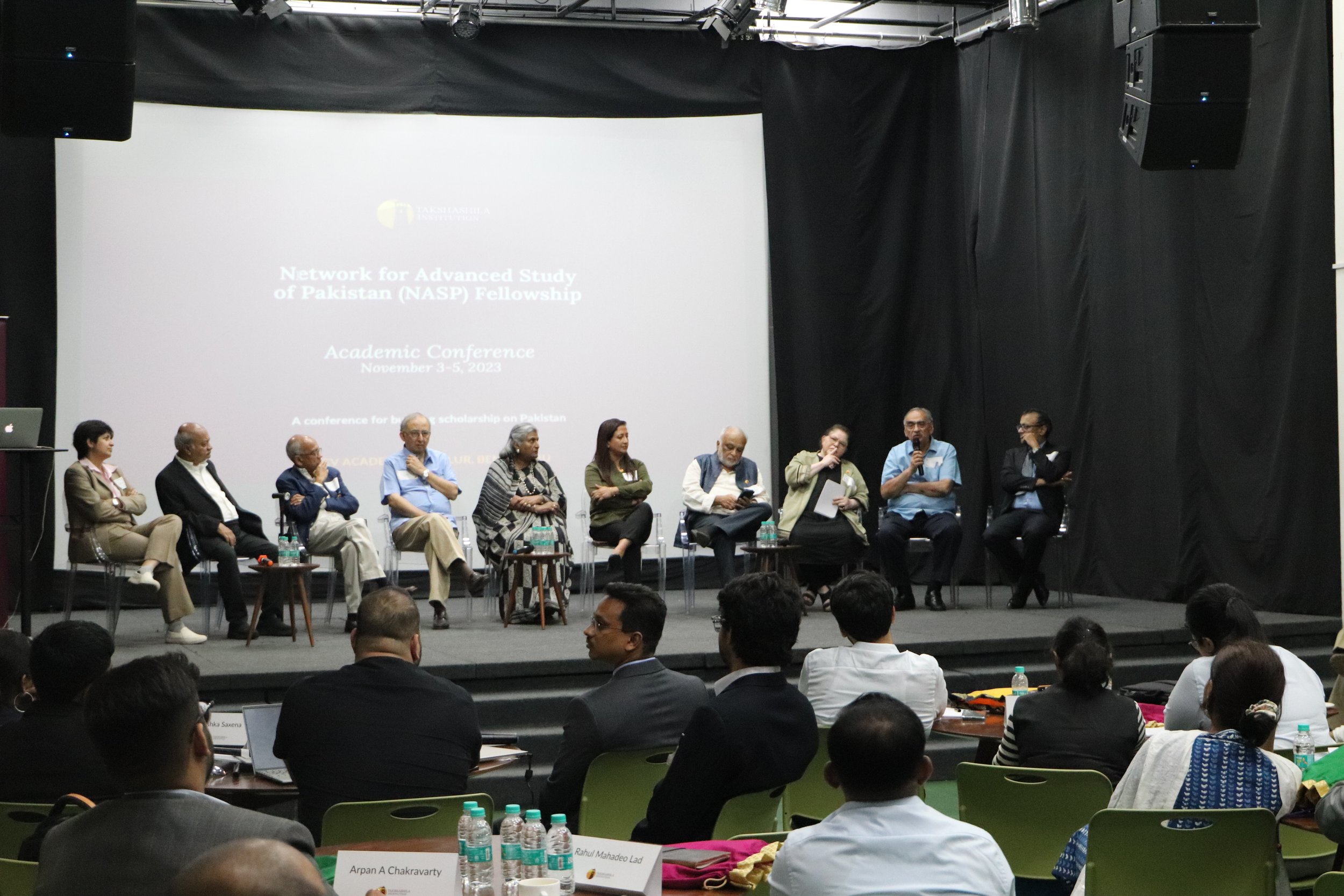Takshashila Organised the First NASP Academic Conference
The Takshashila Institution organised a three-day Network for Advanced Study of Pakistan (NASP) Academic Conference 2023 on November 3-5 at Neev Academy, Bengaluru. The conference witnessed participation from the pioneer cohort of NASP Fellows and distinguished mentors. The working paper presentations by the NASP Fellows were structured around four themes: Foreign Policy, Geopolitics & Defence, Society & Culture, Contemporary Law & Political Economy, and Politics & Internal Security.
The NASP mentors Dr. Sumit Ganguly, Sr. Ayesha Siddiqa, Dr. Aparna Pande, and Mr. Anand Arni also participated in a panel discussion on ‘Pakistan’s Politics and Economics: An Inflection Point or Business as Usual?’. Lt. Gen. Prakash Menon, and Pranay Kotasthane, mentors for the NASP Fellowship were also present.
The conference invitees included Manish Sabharwal, Kavita Gupta Sabharwal, Neena Gopal, Dr. Shanthie Mariet D’Souza, Praveen Swami, Ravi Joshi, Ambassador Latha Reddy, Tilak Devasher, Ambassador Vivek Katju, Pratap M Heblikar and Narayn Ramachandran.
Bashir Ali Abbas and Aditya Ramanathan spoke about the doctrinal and operational evolution of the Pakistan Navy, while Sneha Sengupta and Satya Sahu discussed a paper on Pakistan's quest for data sovereignty and its geopolitical salience. In the Society and Culture theme, Palak Singh and Bashir Abbas discussed their views and study on the politics of women's representation in the Pakistani popular media. Anakha S Thampy and Maria Sony, along with Amit Kumar spoke about Pakistan’s robust start-up culture and whether it is a panacea for youth radicalization in the country.
In another fascinating paper titled ‘Representation of transgenders or hijras in popular culture in Pakistan’, Dr Kaustav Padmapati & Dr Roshni Sengupta, along with Aishwarya S Verma explored a critical study of the burning issue of inclusion and acceptance. In the Contemporary Law and Political Economy theme, the first paper discussed was ‘Indus Water Treaty: India, Pakistan, and International Law’ by Arpan Chakravarty, along with Anushka Saxena.
Nachiketa Thaker and Roshni Sengupta spoke about skilled emigration and its positive impact on Pakistan’s multidimensional poverty – including a spurt in innovation and capacity building. But something that has also led to a negative impact on the drain of human capital and resources.







